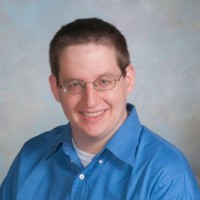Davis Oldham, Ph.D.: Professor and researcher at UMW
4 min read
Davis Oldham conducts research on his own projects while teaching at UMW. UMW.edu
by LEIGH HATTON
Senior Writer
Although UMW is a relatively small university, it produces significant research and attracts accomplished professors. In fact, Davis Oldham believes that UMW achieves these things because of, and not in spite of, its smaller size.
Oldham is a professor in the Chemistry and Physics Departments at UMW and has multiple ongoing research projects. His work is mainly focused on organic and medicinal chemistry.
Oldham shared that he was originally interested in a career in pharmacy when he was a student in high school, but he grew interested in becoming a professor during his time as an undergraduate and graduate student.
“My [undergraduate] advisor was the type where you could come to him and say, ‘I have a different project that I want to work on,’” Oldham said. “So sometimes we all worked on ideas we had, and it was very collaborative, which is how science is and should be.”
As a student studying chemistry, Oldham realized his affinity for explaining scientific topics to other people. This led to a role as a teacher’s assistant for chemistry courses at his school, Lawrence University. Additionally, Oldham attributed his scientific areas of interest to his time working on research as an undergraduate when, surprisingly, a research mishap gave him a new opportunity.
“I got there, and the molecule that I was supposed to be studying had broken down in storage,” he said. “So that meant my tasks switched from cell culture and biology experiments to doing organic synthesis, which was so different from what I had done in my classes. It was really fun, I liked making stuff so that it was good at the job it was designed for. This research program gave me a chance to do that, and I really grew a lot from that experience.”
Oldham’s interest in research has continued throughout his career, and he currently has two ongoing projects. The first has been focused on developing drugs to combat tuberculosis. The second project is based in toxicology, specifically how soft plastics are processed in the human body.
Oldham worked with two UMW students this past summer. He described the experience as helpful and enjoyable.
“Science is collaborative, so they can work on one part of the project, and people can try different things at the same time. I enjoy it, and we can move forward quicker,” he said.
When asked why he wants to give students these types of research opportunities, Oldham outlined the numerous benefits to students. Working in a lab allows students to try more sophisticated techniques than they could practice in a class. Spending hours in a lab each day also gives students an idea of what a future career in research would be like. Oldham also said that for some students, like himself, being involved in research can change the trajectory of their career plans.
“I think that it has a similar impact for them as it did for me,” he said. “I have a former student who was interested in being a [physician’s assistant]. She wound up doing some research, and that, along with other factors, tipped her towards going to grad school for biochemistry.”
Senior chemistry major Nicholas Hacker spoke highly of his research experiences with Oldham.
“I have thoroughly enjoyed my time working under Dr. Oldham,” Hacker said. “He is a fantastic professor and grounded in not just his research, but his demeanor as well, which makes him easy to work with. I’ve learned many new skills, both in and out of the laboratory, because of my time under his tutelage.”
However, research also comes with challenges, especially in recent years. Oldham mentioned the limitations on research during the 2020 semesters. Due to COVID-19, direct collaboration was not possible in the same way it was normally conducted.
“We had to be creative about coming up with solutions and some people wound up going into the building for limited hours and taking turns so they wouldn’t be close to each other,” he said. “As a director of Summer Science, I was really proud of the virtual presentations.”
Oldham also brought up the current supply issues that have made research difficult for him and other UMW faculty in science departments. Items such as plastic syringes and specific chemicals have been harder to locate and order.
Finally, Oldham reflected on his time working at UMW, pointing to the school’s academic environment as one of its best features.
“When I looked at my fellow graduate students, especially some of the most successful ones, they came from places like UMW,” he said. “I saw that small- to medium-sized liberal arts schools were very effective at training students. So I figured, that’s where I want to teach. I’d rather teach here than teach at a school where it’s lectures of 350 students. There, you don’t ask the professor questions… it is really just lecturing.”
Oldham said that it is the people at UMW that foster a sense of community.
“Some schools are getting bigger and going out there and offering spots to students that they don’t have room for,” he said. “I don’t feel like they’re taking care of students. I think here, most of the people that you know have their heart in the right place.”


